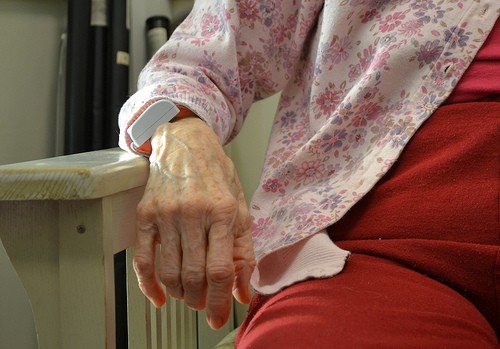
General Features Of Alzheimer’S Disease
Alzheimer’s disease is a disease of the brain affecting elderly people. It is the commonest cause of dementia and is progressive in nature. As the nerve cells in the brain are damaged, the person loses his ability to think clearly and make informed decisions. The thought process becomes clouded and there is a decline in the cognitive functions of the brain. There is a short term memory loss while the long term memories remain largely unaffected. The reason behind the development of Alzheimer’s disease is still not very clear. What is known is the fact that every 70 seconds, a new person is afflicted with the disease. People above 60 years of age are more prone to develop Alzheimer’s with 50% of them being above 85 years of age.

Other Medical Conditions Which May Look Like Alzheimer’S Disease
Conditions in which patient may suffer a memory loss are most likely to be confused with Alzheimer’s disease. These conditions include vitamin deficiencies, thyroid problems and depression. However, memory loss in these conditions is transient and is readily corrected by treatment. Other causes of dementia which cannot be treated and hence may be confused with Alzheimer’s disease include Parkinson’s disease, Lewy body disease, Creutzfeldt-Jakob disease and stroke. However, these diseases are comparatively rare. Apart from these diseases, several other conditions may produce memory loss. They include: • Consuming a lot of alcohol • Blood clots in the brain • Brain tumors • Kidney problems • Liver disorders • Head injury • Adverse reaction to certain medicines
- Important notification about information and brand names used in this slideshow!
- Photo courtesy of New Media Ba by Picasa : picasaweb.google.com/104919940046622069790/Stariji#5654809323619204514
- www.nia.nih.gov/sites/default/files/understanding_alzheimers_disease.pdf
- http://www.pbs.org/newshour/rundown/2013/05/signs-of-alzheimers-disease-10-things-you-should-know.html
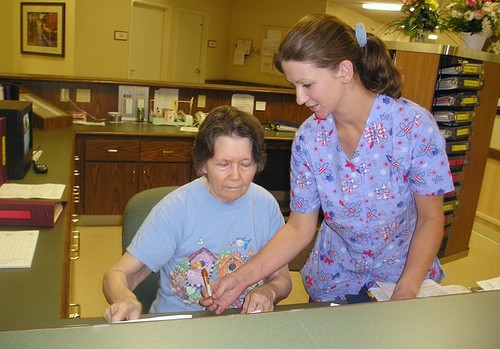
Warning Signs Of Alzheimer’S Disease
The earliest warning sign of Alzheimer’s disease is a failing memory. This may lead to several problems including: • Difficulty in locating things at home or in office • Facing problem in paying bills • Taking a long time to solve even simple math problems • Asking the same question repeatedly • Losing the way even in familiar places • Losing things • Starting to put things at odd places In a free confidential memory screening test held by the Alzheimer's Foundation of America's National Memory Screening Day in 2010, more than 74% of the participants confided that they were worried about their failing memory. Yet, only 17% found it necessary to discuss this problem with their health care providers. It is because the people do not consider this problem severe enough, that Alzheimer’s disease goes undetected for a long time.
- Important notification about information and brand names used in this slideshow!
- Photo courtesy of Viki by Flickr : www.flickr.com/photos/vikis/1740725600/
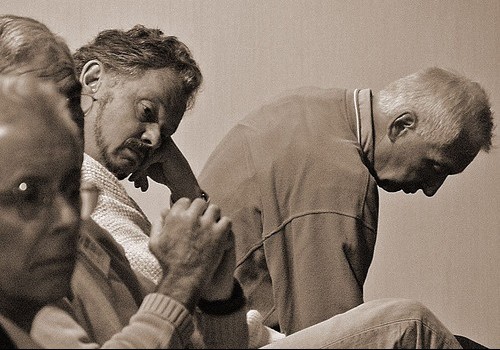
Memory Problems In Alzheimer’S Disease
In the early stages of Alzheimer’s disease, the long term memory remains intact. The patient retains very little of what he reads. He has difficulty in recalling words or names which can be noticed by close family members if they are attentive enough. As the disease advances, patients suffering from Alzheimer’s disease begin forgetting important information like the address or phone numbers of close relatives and even their own. The patients become confused about their whereabouts and keep getting lost. As the disease progresses further, the patients may even fail to recognize their close relatives. They lose orientation of time and place, become agitated or depressed and start having hallucinations.
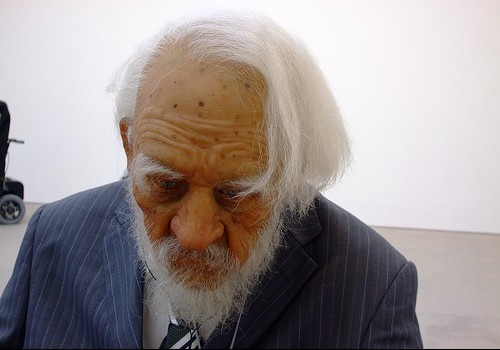
Changes In Behavior Of People Suffering From Alzheimer’S Disease
Apart from memory loss, a patient of Alzheimer’s disease experiences several changes in his behavior. The patient appears confused and is unable to recognize his close ones. Therefore, he appears aloof. There are wide mood swings. The patient may appear irritated or depressed. There is a loss of sense of hygiene. The mood changes can occur several times in a day and are especially severe if the patient is suffering from sundown syndrome. The sleep pattern is disturbed, the patient yells at his caregiver, paces the room and even becomes combative at times. He may suffer from hallucinations and often views others with suspicion.

Progression Of Alzheimer’S Disease
The nature of progression of Alzheimer’s disease varies from patient to patient. While in certain patient, the disease progresses at a rapid pace and the patient suffers from severe memory loss within a few years of the onset of the disease, in other patients, the changes take place gradually and the patient may continue to live for almost 20 years after the onset of the disease. However, on an average, a patient suffering from Alzheimer’s disease lives for three to nine years. In the early stage of Alzheimer’s disease, there are minor changes in the person’s behavior. Memory loss begins to take place and the disease is often not diagnosed. In the middle stage of the disease, the forgetfulness becomes more marked. Patient appears confused and starts needing help for performing basic chores. Mood swings are frequent and the patient may become aggressive. In the late stage of Alzheimer’s disease, the patient becomes totally dependent up on others. Memory loss is pronounced and he fails to recognize even close relatives. Patients often become confined to a wheelchair or become bedridden.
- Important notification about information and brand names used in this slideshow!
- Photo courtesy of Tim and Selena Middleton by Flickr : www.flickr.com/photos/tim_and_selena/1460656644/
- www.alzheimers.org.uk/site/scripts/documents_info.php?documentID=133

Alzheimer’S Patient Face Difficulty In Driving
It is not advisable for a person suffering from Alzheimer’s disease to drive on his own. Such patients often suffer from poor judgment and confusion and being behind the wheels can become hazardous. Moreover, patients of Alzheimer’s disease suffer from significant memory loss. They tend to get lost even in familiar places. They forget phone numbers and addresses and therefore, can easily get lost while driving. Although it is a difficult decision to give up one’s driving license, it has to be done taking into account the patient’s safety. The dangers of driving have to be explained to the patient gently. If a patient still insists on driving on his own, he should be assessed by the Department of Motor Vehicles.
- Important notification about information and brand names used in this slideshow!
- Photo courtesy of John Pozadzides by Picasa : picasaweb.google.com/lh/view?q=old+person+driving&uname=109008901828086469253&psc=G&filter=1#5766172585707125490
- www.alz.org/national/documents/brochure_ifyouhave_earlystage.pdf

The Role Of Exercise In An Alzheimer’S Patient
Regular exercise has been found to be useful for patients suffering from Alzheimer’s disease. It helps them in maintaining the strength of their muscles and aids in better coordination. The release of exercise induced endorphins helps in mood elevation and provides relief from anxiety. It increases the capacity of cells to endure oxidative stress, and helps in improving the blood supply and energy metabolism. These features help in improving memory, plasticity of the brain and neurogenesis. Patients suffering from Alzheimer’s disease report improvement in memory and communication skills after taking part in routine exercise programs. Experts suggest that repetitive exercises like walking, taking out weeds and even folding laundry can go a long way in inducing a sense of calm in patients suffering from Alzheimer’s disease.

Medications Used For Treating Alzheimer’S Patients
It is a known fact that there is no cure for Alzheimer’s disease. The disease is progressive in nature and cannot be reversed. However, medicines are effective in slowing the progression of the disease and delaying the memory loss associated with the disease. They work best in the early and middle stages of the disease. So, it is always better if the disease is detected at the earliest and the treatment is started as soon as possible. There are memory pills to aid memory, medicines to aid better sleep and medicines to fight depression. All of these medicines have certain side effects. Medicines that suit one patient may not necessarily suit the other patient. Therefore, the medicines are selected and titrated according to the patient’s need.

How To Reduce Your Risk Of Developing Alzheimer’S Disease?
As the reason behind the development of Alzheimer’s disease is not known, it is difficult to say what steps would prevent the disease. However, ongoing research points that exercise and diet may hold the key. A Mediterranean diet is believed to lower the risk of Alzheimer’s. Similarly, physical as well as mental exercise keeps the brain healthy and reduces the risk of developing Alzheimer’s disease. Experts suggest six simple steps to maintain a lifestyle that is brain healthy and can offer protection against Alzheimer’s disease. These steps are: • Exercising regularly • Eating a healthy diet • Doing work that challenges your mind • Getting adequate sleep • Managing stress • Leading a socially active life
- Important notification about information and brand names used in this slideshow!
- Photo courtesy of New Media Ba by Picasa : picasaweb.google.com/104919940046622069790/Stariji#5586464265754698930
- eldercareabcblog.com/eight-things-you-need-to-know-about-alzheimers-disease/
- http://www.helpguide.org/elder/alzheimers_prevention_slowing_down_treatment.htm






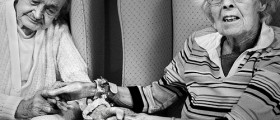
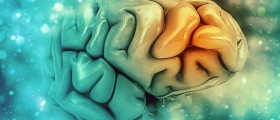









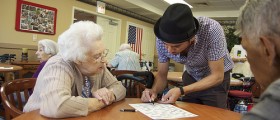




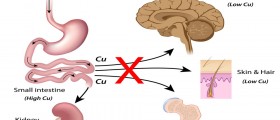
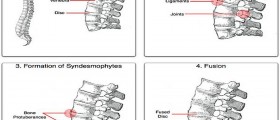



Your thoughts on this
Loading...